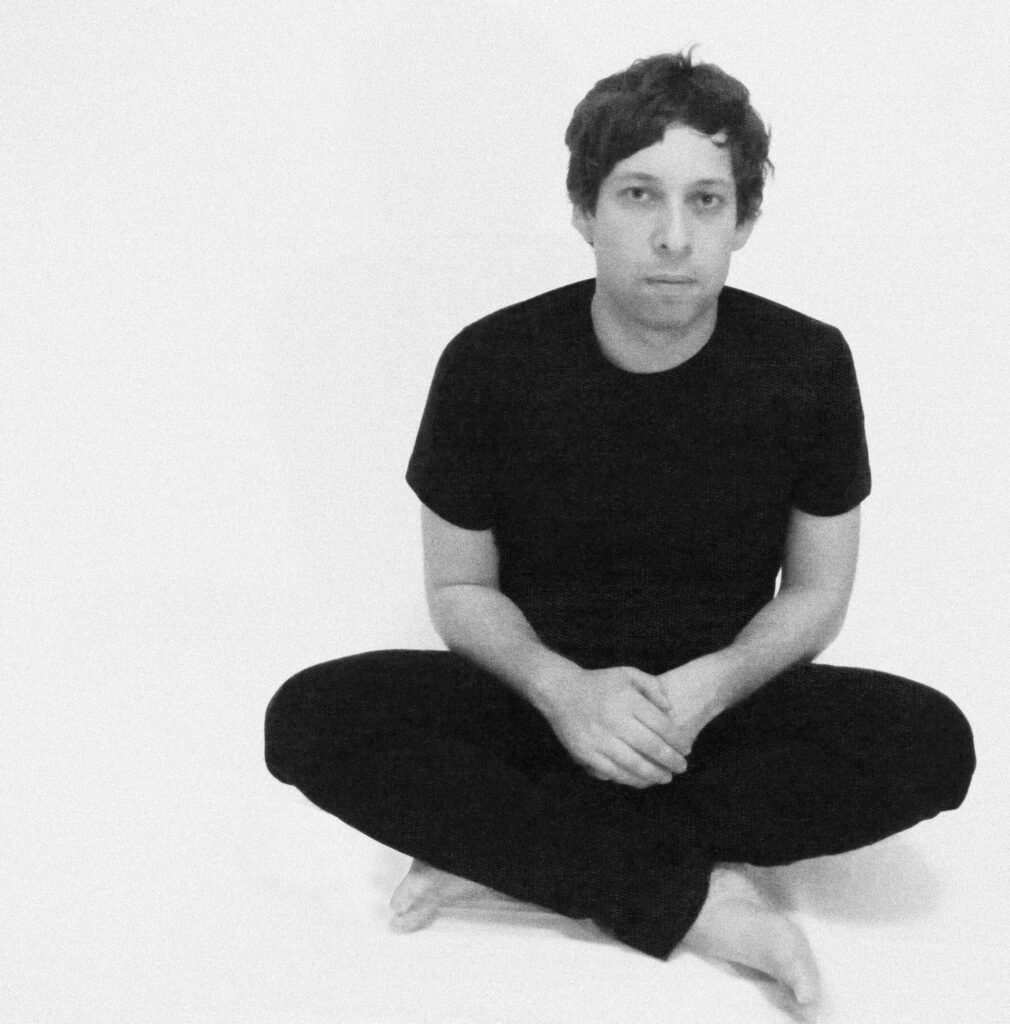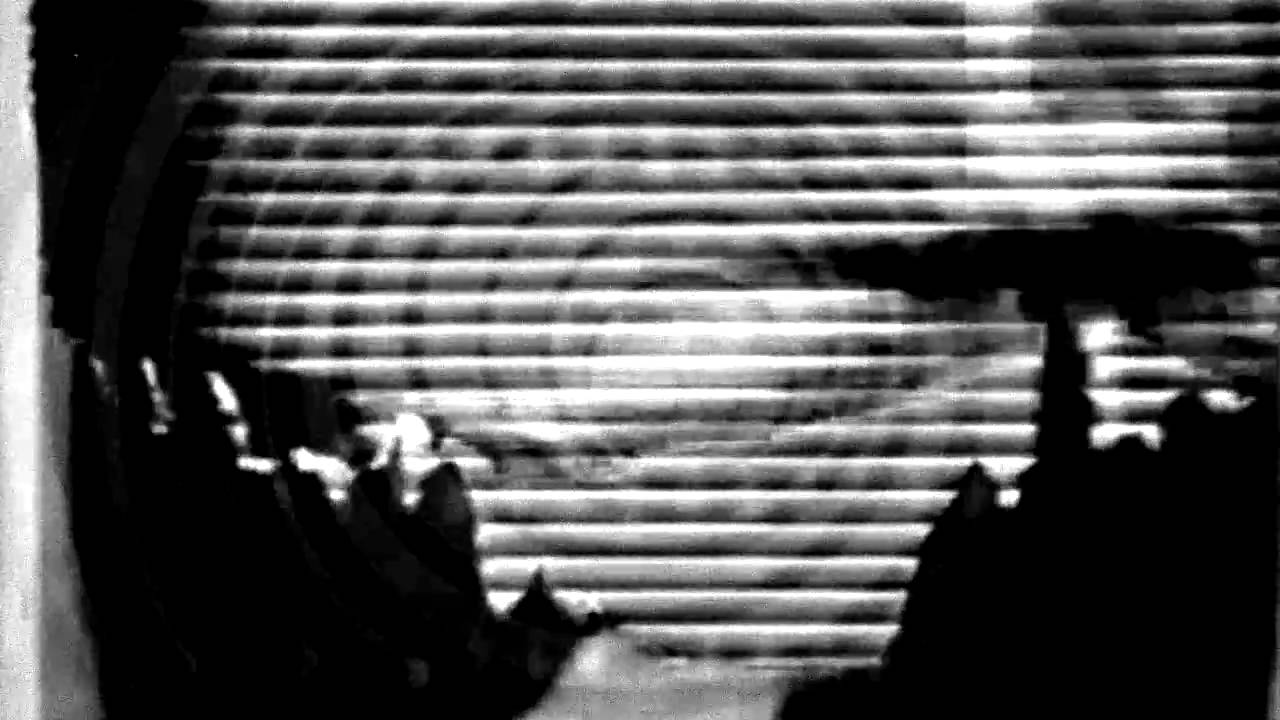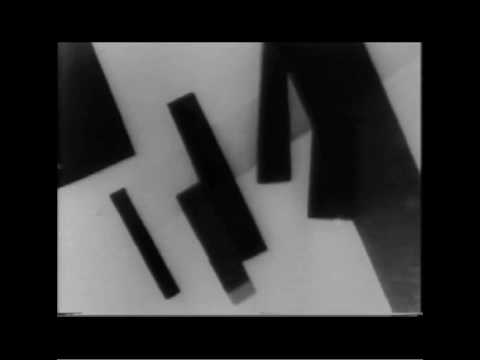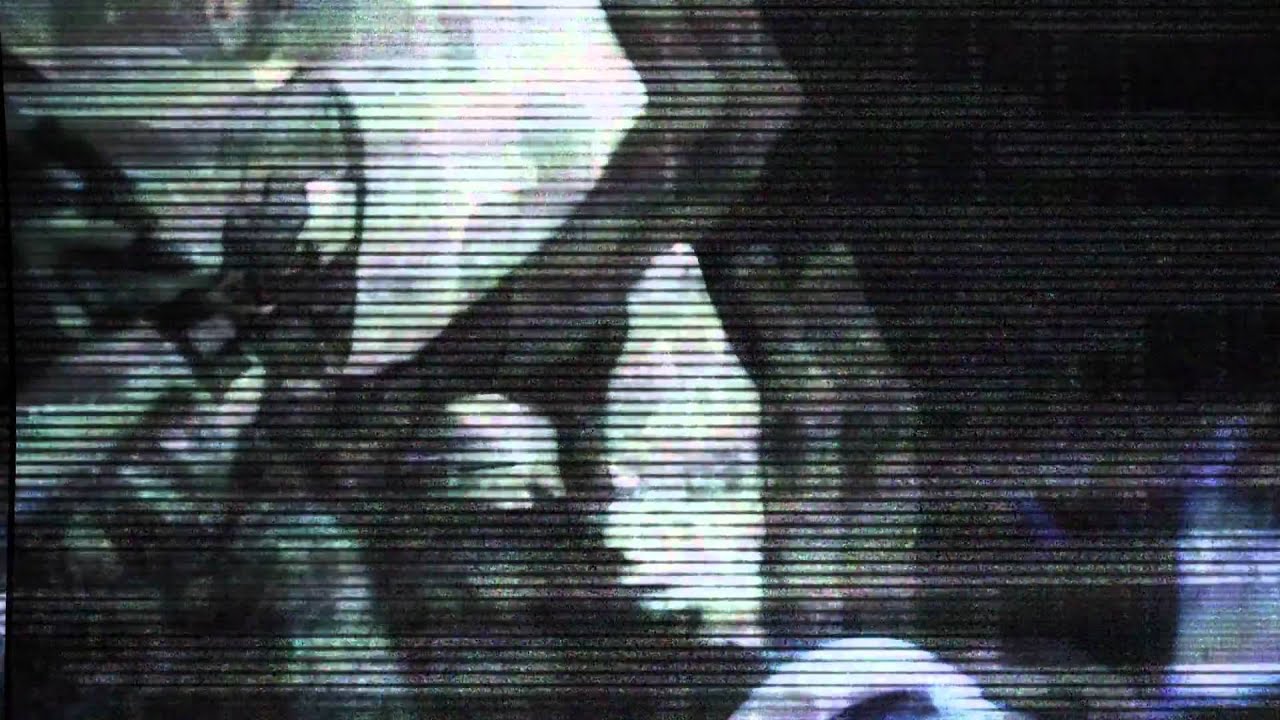All the most interesting music of our era seems to inhabit a myriad of intellectual and emotional spaces at once. Whether we think of it as pop or avant garde in its leanings, to truly resonate with a modern audience, it music must satisfy our rather paradoxical desire to both escape from ourselves, and examine ourselves further.
Luis Vasquez believes in this dichotomy fervently, and manages to organize the profundity of self-realization and the futility of escape into a cohesive whole via his project, The Soft Moon. Their self-titled debut – which came out on Captured Tracks in November 2010 – has won Vasquez a legion of fans in his native US and elsewhere, as evidenced by the packed throng clamoring noisily for more after the band’s first foray onto UK soil at The Lexington.
When Luis introduces his band, I’m prepared for them to be cooler
than thou. It’s no surprise that in addition to Justin Anastasi and Damon Way, his fellow instrumentalists, he introduces projectionist and lighting designer Ron Robinson as the fourth member of the band. The Soft Moon’s presentation both on and off the stage is finely honed to give you nothing but the impression of disaffectation, sophistication and a strong connection to the Primal: a tightly controlled diorama of what a modern no wave/post punk act should be. The performance that night is a sensory assault of white light, intensely moving figures, flickering boxes, topped with Luis’ alternately whispering and yelping vocalizations. The Dada/ constructivist themed videos for ‘Tiny Spiders’ and ‘Circles’ that have surfaced have been similarly opaque.
"Ron and I have known each other for some time. He does the live
projections… incorporates his creative mind into the visual aesthetic of the project," says Luis, beaming at his band mate before going to explain how he began with The Soft Moon logo long before his bandmates were involved. "From there, I continued and the visual style took on a Russian constructivist feel, sort of Dada or Bauhaus influenced," he explains. "At that point, Ron started resonating with the visual aspects of the project. He had a bunch of ideas… it’s been evolving, but it still has one focus."
And that focus comes from Luis. He started The Soft Moon on his own in his flat in San Francisco, seeing it first as a solo project. But bass player Justin was enthralled when he saw Luis play his first Soft Moon gig – so much so that he went backstage to convince Vasquez to let him help bring his insular personal vision to life on stage in future. He introduced Luis to multi instrumentalist Damon, and Ron – Luis’ friend from way back – completes the current line up.
Often when musicians join a project long after the initial burst of creativity, they are keen to set their stamp on the music or the aesthetic, asserting their own creative prowess. Charmingly, The Soft Moon seem to hold their frontman and his creation in high regard, singing his praises and keen to explain how he recorded this song or that vocal. At one point Damon looks at the silent Luis. "We are doing such a good job of talking about you," he says, sheepishly.
The album is an aurally intense work; the songs are full of texture and tension. Songs like ‘Parallels’ and ‘Into The Depths’ seethe with anxiety and darkness, evolving via rigid claustrophobic basslines and hypnotically repetitive synth progressions until Vasqeuz’ tortured vocal finally breaks free. He howls and moans as the sense of confinement dissipates and the listener is left feeling peculiarly hopeful, of having
reached the light at the end of someone else’s tunnel.
"It’s a very introspective project," Luis says. "It started out as me going internal, going into past experiences, my childhood, family environment and the music that I listened to growing up. The darkness emerged out of that. And I’m still trying to figure out why. Maybe I am scared of a lot of things, like death or things that are not yet clear to me. But then there’s that hopeful aspect that battles those fears."
So it’s a journey of self-discovery, of unearthing personal demons and examining them, learning from them, moving on. When the myth of Theseus entering the Labyrinth and battling the Minotaur at its centre is mentioned, Luis nods enthusiastically. "Yes, that’s exactly it."
Does the journey have an end point? When Luis Vasquez has
unburdened himself fully and come to terms with whatever it is living inside him, driving him on, will he just pack his synthesizers and guitar effects away and do something else? "I don’t know if there’s ever going to be that point of closure," he says. "I have a hard time with closure. This project is a way for me to find a way of dealing with life. It’s about giving myself confidence and finding that through the music."
Luis began making music with his guitar, playing in teenage punk
bands and skateboarding with Ron. His house was full of music but his parents weren’t exactly thrilled by the idea of their son becoming a musician. He reveals: "I begged my grandfather for a guitar and finally he brought me one. I had a hard time getting my parents to support me but that’s another aspect of the music -defeating the enemy in a way. Trying as hard as I can to prove myself and have success with this. Now, it feels good."
Luis grew up in California’s Mojave desert, home to Death Valley, the hottest place on earth and Joshua Tree National park. The context of this epic widlerness is as important to his music as what he experienced living there. "70 to 80 % of the album is inspired by where I grew up in the middle of the desert, in the middle of nowhere. I didn’t have access to a lot of things as a teenager wanting to express myself in different ways. I think that landscape and being frustrated in it inspired a lot of the album."
Surrounded by wide-open spaces hemmed in at the horizon by vast
mountains and clouds, it’s unsurprising that that album can shift so suddenly from claustrophobic intensity to yearning romantic
movements and epic shimmering space. "It’s a very beautiful place. You have all of nature, the stars, mountains and hills. The romanticism is a reaction to that. After the album was released I visited my mom who still lives there. I listened to the album and things came through. This song feels like I’m trapped. No wonder, I’m surrounded by mountains or this one feels infinite, because I can see so much horizon.
For Luis making music and having these epiphanies is a therapeutic experience but also a difficult one. "It’s really draining," he says. "When I approach a new track, when its time to start writing again, I almost dread it. But the feeling I get when I have accomplished what I want in sonic form is amazing." And once a feeling or a memory is definitively expressed the song is finished? "That’s exactly when the song is finished.
Once I have captured a mood…I can never return. Its impossible for me."
"Its like a photograph," add Justin. "Everything he writes is done very quickly. "
"Snapshots," agrees Luiz. "Snapshot tracks… Things that are happening around me and things that have happened in the past. Its all encompassing… very spontaneous. Nothing is predetermined in terms of writing the material. I have a technique that I use whenever I record. I leave everything as it is. I don’t edit. Probably another reason why so many people say subconsciously they relate to the music. Life is unpredictable and spontaneous so I want the music to express that."
And will it be possible to hold on to his distinct and single-minded focus on unearthing and dissecting the past in future, with so many new collaborators around him? " I think that we have an agreement in terms of holding on to the initial vision. Its funny how these guys are all part of my childhood now cos the music is my childhood, my life. I’m going to approach music a little differently in future and I would like to in corporate the guys more. But my vision will remain."
"Like a creative director," says Damon.
Luis shakes his head. "I don’t like the way that sounds."
"The opposite would be to try and be a democracy. Fragmented and
lost with us all trying to compromise" Damon continues.
"Four different songs at once," chimes in Justin. "I’ve seen bands like that… four strong egos, everything just gets watered down. This is a direct message from one person and one personal experience. But its something that we can all share because we all have similar backgrounds."
It seems obvious from the sound of The Soft Moon’s debut that Luis’ major musical influences are not going to be what Justin scornfully terms "the laundry list" of post punk bands that make up the teenage playlists of most musicians. When Luis mentions Suicide or Bauhaus it’s no surprise – their stamp is all over the whispered vocals and heavily chorused basslines of ‘Breathe The Fire’ and ‘Sewer Sickness’.
But Prince?
"It all started with Prince," he admits, "That’s probably the first artist I listened to and didn’t just hear. So yes, it started with pop music. I actually love pop music. It’s just that I incorporate that into The Soft Moon in an unconventional way, but it’s definitely there. And from Prince I went to Slayer, then from Slayer into jazz and then psychedelic rock, and then krautrock. Now I just listen to world music and world
psychedelic music. I don’t really listen to new music. If I did, they would probably be doing something completely different from me."
Luis’ face lights with interest when he is asked if he considers himself a spiritual person. "It’s a huge part of my life," he answers. "In a way that I can’t really describe, [but] only feel. I look at everything spiritually. It’s more difficult in this time because everything seems to be rooted in getting more stuff."
And it seems that this is what Vasquez has been trying to express all along, reminding his audience about the importance of retaining spirituality and soulfulness in a modern age: "I want to give them something real. And take them back to thinking about how they are human and what happens to them when the humanity is gone. I’m trying to figure that out myself but I like to think about those things."
Is your audience spiritually devoid of this quality? Are they lost?
"I don’t think they’re lost. I think we are all searching for the same thing. I think we are searching for it together."
The Soft Moon are an infinitely seductive proposition for a modern audience. They offer all the sunglasses-at-midnight dystopian thrills of a dissonant and disaffected late 70s no wave outfit, while simultaneously striving towards a romance drenched frontier born of nostalgic revelry and spiritual redemption, a vision worthy of the most starry eyed bellbottomed troubadour. It’s a heady mix offered to the world like the last unknowable chocolate in the selection box, all dark and forbidding outer shell with a surprisingly sweet and gooey centre. And it’s well worth biting into it.






